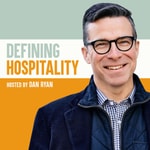The Panpsycast Philosophy Podcast – Details, episodes & analysis
Podcast details
Technical and general information from the podcast's RSS feed.

The Panpsycast Philosophy Podcast
Jack Symes | Andrew Horton, Oliver Marley, and Rose de Castellane
Frequency: 1 episode/9d. Total Eps: 354

Recent rankings
Latest chart positions across Apple Podcasts and Spotify rankings.
Apple Podcasts
🇬🇧 Great Britain - philosophy
29/07/2025#28🇬🇧 Great Britain - philosophy
28/07/2025#24🇫🇷 France - philosophy
28/07/2025#100🇬🇧 Great Britain - philosophy
27/07/2025#66🇫🇷 France - philosophy
27/07/2025#90🇫🇷 France - philosophy
26/07/2025#79🇬🇧 Great Britain - philosophy
25/07/2025#94🇫🇷 France - philosophy
25/07/2025#59🇬🇧 Great Britain - philosophy
24/07/2025#51🇫🇷 France - philosophy
24/07/2025#50
Spotify
No recent rankings available
Shared links between episodes and podcasts
Links found in episode descriptions and other podcasts that share them.
See all- https://www.epidemicsound.com/
2613 shares
- https://www.nyu.edu/
53 shares
- https://twitter.com/AstroKatie
10 shares
- https://twitter.com/tamler
8 shares
- https://twitter.com/kate_manne
6 shares
RSS feed quality and score
Technical evaluation of the podcast's RSS feed quality and structure.
See allScore global : 42%
Publication history
Monthly episode publishing history over the past years.
Episode 134, The Philosophy of War (Part I - The Human Condition)
dimanche 25 août 2024 • Duration 42:38
On August 6, 1945, an atomic bomb was dropped on Hiroshima, instantly killing up to 80,000 civilians, with another 40,000 dying soon after from burns and radiation poisoning. The bombings of Hiroshima and Nagasaki led to the surrender of the Japanese Army, marking the end of the most destructive war in history.
War has been a constant throughout history. Since the dawn of agriculture, humans have waged war against one another. Some argue that war is ingrained in human nature, from our ancestors battling over resources and empires seeking expansion, to biblical genocides and acts of human sacrifice—Homo sapiens are seemingly insatiable for conflict. Others, however, believe war is not inevitable and that we have the capacity for humility, justice, and kindness without resorting to armed conflict.
We must remember that explaining war is not the same as justifying it. While pacifism, as exemplified by Jesus and Gandhi, is often seen as noble, is non-violence truly effective against regimes intent on ethnic cleansing? If not, how do we determine when war is justified and what defines proportional force? Can the killing of innocent civilians ever be justified? And, if not, how do they differ from innocent combatants? War, huh, good god, what is it good for?
Links
A.C. Grayling, War: An Enquiry (book)
Richard Overy, Why War? (book)
Jeff Mcmahan, Killing in War (book)
Michael Walzer, Just and Unjust Wars (book)
Episode 133, 'Vulture Capitalism' with Grace Blakeley: Live at Glastonbury Festival
dimanche 11 août 2024 • Duration 47:35
They say money can’t buy happiness, but it can buy power, freedom, and security. The one per cent – who control nearly half of the world’s wealth – understand this better than anyone. In capitalist democracies, corporations spend billions on political donations and lobbying to influence economic policies in line with their own interests. The trillions spent by governments in propping up the banks following the 2008 financial crash – and the bailing out of the largest corporations through the Covid Corporate Financing Facility – speak volumes: the state and the economy are not separate entities. The goal of the state is clear: “Steady the ship and maintain course.”
Corporations don’t just pose a threat to our economic freedoms, but the future of the natural world. Just a handful of firms are responsible for over seventy per cent of carbon emissions, and despite public pressure, corporate action on the climate crisis has been largely ineffective. We shouldn’t be surprised; after all, industry holds the power, and turkeys don’t vote for Christmas.
Links
Grace Blakeley, Vulture Capitalism: Corporate Crimes, Backdoor Bailouts and the Death of Freedom
Episode 128, ‘Domestic Labour’ with Paulina Sliwa & Tom McClelland (Part II - Further Analysis and Discussion)
dimanche 7 avril 2024 • Duration 32:53
‘The kitchen needs cleaning, but only one of us seems to notice. I mean, he looked straight at the dishes in the sink…and just stacked his dish on top of them. How high does this precarious tower of crockery have to be until he decides to wash the dishes or, more likely, they collapse into an unrepairable heap? I suppose I’ll have to wash them. They won’t get washed otherwise, and I’d rather get them off my mind.’
The unequal distribution of household labour is a familiar concern amongst feminists. Despite the progress in women’s rights and freedoms, women across the world continue to bear the responsibility of domestic chores and childcare. This raises an important question: why do women in monogamous, opposite-sex relationships continue to shoulder a disproportionate amount of housework work despite their political gains?
In this episode, we’ll be exploring this question with two outstanding philosophers of morality and mind: Paulina Sliwa (Professor of Philosophy at the University of Vienna) and Thomas McClelland (Lecturer in Philosophy at the University of Cambridge).
According to Paulina and Tom, our disparities and perception of domestic labour are determined by our feelings, beliefs, and social norms. In other words, the way we perceive the world is radically different. The dishes don’t call out to some – in need of cleaning – in a moment of perception, as they do to others. So what can we do to change this disparity…that is, if it’s in need of changing at all.
Contents
Part I. Affordance Perception
Part II. Further Analysis and Discussion
Links
Coverage of Gendered Addordance Perception in the media (website)
Episode 90, Arthur Schopenhauer (Part IV - Suffering, Aesthetics, and Ethics)
dimanche 24 janvier 2021 • Duration 56:25
Introduction
I am Ixion, strapped to the burning wheel of fire in the underworld that is my life. A bleak assessment to be sure, but I put it to you that it is the truth. For what is life if not an ever-swinging pendulum of pain and boredom, kept in motion by the insatiable will? I constantly strive for the things that I want, but what I want is never enough; long-term satisfaction is tedium elegantly veiled. This alone is a cruel trick to the individual, but in a world of many, it is the ultimate tragedy.
The wills of the multitude cannot avoid the inevitable conflict, as one will’s ends treats another as its means. The tiger feasts on the wild dog, who feasts on the baby turtle, all to propagate life so that future generations can play out this tragic scene ad infinitum. In human life - save rare moments of true compassion - we are little better. Yet, there is a hint of salvation.
What if we all realised that, at our core, we are the same will? What if we could make the wheel of Ixion stand still, if only for a moment? Would it be possible to see beauty? Would it be possible to see to fellow sufferers rather than fellow egos? I suspect it might, but I am afraid that I, and many others, are easily fooled. ‘The Will’ will do as it pleases, and not what pleases us.
Contents
Part I. The Life of Arthur Schopenhauer
Part II. The World as Representation
Part III. The World as Will
Part IV. Suffering, Aesthetics, and Ethics
Part V. Further Analysis and Discussion
Links
Bernardo Kastrup, Decoding Schopenhauer’s Metaphysics (book)
Christopher Janaway, Schopenhauer: A Very Short Introduction (book)
Bryan Magee, The Philosophy of Schopenhauer (book)
Arthur Schopenhauer, Essay and Aphorisms (book)
Arthur Schopenhauer, The World as Will and Representation — Vol. 1 (book)
Arthur Schopenhauer, The Two Fundamental Problems of Ethics (book)
Arthur Schopenhauer, On the Fourfold Root of the Principle of Sufficient Reason and Other Writings (book)
Stanford Encyclopedia of Philosophy, Arthur Schopenhauer (online)
Intern Encyclopedia of Philosophy, Arthur Schopenhauer (online)
Episode 90, Arthur Schopenhauer (Part III - The World as Will)
dimanche 17 janvier 2021 • Duration 46:45
Introduction
I am Ixion, strapped to the burning wheel of fire in the underworld that is my life. A bleak assessment to be sure, but I put it to you that it is the truth. For what is life if not an ever-swinging pendulum of pain and boredom, kept in motion by the insatiable will? I constantly strive for the things that I want, but what I want is never enough; long-term satisfaction is tedium elegantly veiled. This alone is a cruel trick to the individual, but in a world of many, it is the ultimate tragedy.
The wills of the multitude cannot avoid the inevitable conflict, as one will’s ends treats another as its means. The tiger feasts on the wild dog, who feasts on the baby turtle, all to propagate life so that future generations can play out this tragic scene ad infinitum. In human life - save rare moments of true compassion - we are little better. Yet, there is a hint of salvation.
What if we all realised that, at our core, we are the same will? What if we could make the wheel of Ixion stand still, if only for a moment? Would it be possible to see beauty? Would it be possible to see to fellow sufferers rather than fellow egos? I suspect it might, but I am afraid that I, and many others, are easily fooled. ‘The Will’ will do as it pleases, and not what pleases us.
Contents
Part I. The Life of Arthur Schopenhauer
Part II. The World as Representation
Part III. The World as Will
Part IV. Suffering, Aesthetics, and Ethics
Part V. Further Analysis and Discussion
Links
Bernardo Kastrup, Decoding Schopenhauer’s Metaphysics (book)
Christopher Janaway, Schopenhauer: A Very Short Introduction (book)
Bryan Magee, The Philosophy of Schopenhauer (book)
Arthur Schopenhauer, Essay and Aphorisms (book)
Arthur Schopenhauer, The World as Will and Representation — Vol. 1 (book)
Arthur Schopenhauer, The Two Fundamental Problems of Ethics (book)
Arthur Schopenhauer, On the Fourfold Root of the Principle of Sufficient Reason and Other Writings (book)
Stanford Encyclopedia of Philosophy, Arthur Schopenhauer (online)
Intern Encyclopedia of Philosophy, Arthur Schopenhauer (online)
Episode 90, Arthur Schopenhauer (Part II - The World as Representation)
dimanche 10 janvier 2021 • Duration 50:21
Introduction
I am Ixion, strapped to the burning wheel of fire in the underworld that is my life. A bleak assessment to be sure, but I put it to you that it is the truth. For what is life if not an ever-swinging pendulum of pain and boredom, kept in motion by the insatiable will? I constantly strive for the things that I want, but what I want is never enough; long-term satisfaction is tedium elegantly veiled. This alone is a cruel trick to the individual, but in a world of many, it is the ultimate tragedy.
The wills of the multitude cannot avoid the inevitable conflict, as one will’s ends treats another as its means. The tiger feasts on the wild dog, who feasts on the baby turtle, all to propagate life so that future generations can play out this tragic scene ad infinitum. In human life - save rare moments of true compassion - we are little better. Yet, there is a hint of salvation.
What if we all realised that, at our core, we are the same will? What if we could make the wheel of Ixion stand still, if only for a moment? Would it be possible to see beauty? Would it be possible to see to fellow sufferers rather than fellow egos? I suspect it might, but I am afraid that I, and many others, are easily fooled. ‘The Will’ will do as it pleases, and not what pleases us.
Contents
Part I. The Life of Arthur Schopenhauer
Part II. The World as Representation
Part III. The World as Will
Part IV. Suffering, Aesthetics, and Ethics
Part V. Further Analysis and Discussion
Links
Bernardo Kastrup, Decoding Schopenhauer’s Metaphysics (book)
Christopher Janaway, Schopenhauer: A Very Short Introduction (book)
Bryan Magee, The Philosophy of Schopenhauer (book)
Arthur Schopenhauer, Essay and Aphorisms (book)
Arthur Schopenhauer, The World as Will and Representation — Vol. 1 (book)
Arthur Schopenhauer, The Two Fundamental Problems of Ethics (book)
Arthur Schopenhauer, On the Fourfold Root of the Principle of Sufficient Reason and Other Writings (book)
Stanford Encyclopedia of Philosophy, Arthur Schopenhauer (online)
Intern Encyclopedia of Philosophy, Arthur Schopenhauer (online)
Episode 90, Arthur Schopenhauer (Part I - The Life of Schopenhauer)
dimanche 3 janvier 2021 • Duration 01:16:11
Introduction
I am Ixion, strapped to the burning wheel of fire in the underworld that is my life. A bleak assessment to be sure, but I put it to you that it is the truth. For what is life if not an ever-swinging pendulum of pain and boredom, kept in motion by the insatiable will? I constantly strive for the things that I want, but what I want is never enough; long-term satisfaction is tedium elegantly veiled. This alone is a cruel trick to the individual, but in a world of many, it is the ultimate tragedy.
The wills of the multitude cannot avoid the inevitable conflict, as one will’s ends treats another as its means. The tiger feasts on the wild dog, who feasts on the baby turtle, all to propagate life so that future generations can play out this tragic scene ad infinitum. In human life - save rare moments of true compassion - we are little better. Yet, there is a hint of salvation.
What if we all realised that, at our core, we are the same will? What if we could make the wheel of Ixion stand still, if only for a moment? Would it be possible to see beauty? Would it be possible to see to fellow sufferers rather than fellow egos? I suspect it might, but I am afraid that I, and many others, are easily fooled. ‘The Will’ will do as it pleases, and not what pleases us.
Contents
Part I. The Life of Arthur Schopenhauer
Part II. The World as Representation
Part III. The World as Will
Part IV. Suffering, Aesthetics, and Ethics
Part V. Further Analysis and Discussion
Links
Bernardo Kastrup, Decoding Schopenhauer’s Metaphysics (book)
Christopher Janaway, Schopenhauer: A Very Short Introduction (book)
Bryan Magee, The Philosophy of Schopenhauer (book)
Arthur Schopenhauer, Essay and Aphorisms (book)
Arthur Schopenhauer, The World as Will and Representation — Vol. 1 (book)
Arthur Schopenhauer, The Two Fundamental Problems of Ethics (book)
Arthur Schopenhauer, On the Fourfold Root of the Principle of Sufficient Reason and Other Writings (book)
Stanford Encyclopedia of Philosophy, Arthur Schopenhauer (online)
Intern Encyclopedia of Philosophy, Arthur Schopenhauer (online)
Episode 89, Dostoevsky's Notes from Underground (Part V - Further Analysis and Discussion)
dimanche 27 décembre 2020 • Duration 48:17
Introduction
I write this in secret, hoping that these notes be passed on outside Russia. The author of the diary and the diary itself may, of course, be imaginary. Nevertheless, it is clear that such persons as the Underground Man do exist in our society.
We have tried to expose him to the public but so far there has been no luck. If only people knew of the power of the Underground. He is one of the representatives of a generation still living, a generation waiting patiently for the right moment. His notes were discovered long after his passing, written on tatty paper in cheap ink, covered in cigarette burns and dust….
Don’t listen to the ants who would rather slave over the anthill than accept the truth. These notes are yours now, spread them to every corner of the globe. Long live the Underground!
Contents
Part I. The Life of Fyodor Dostoevsky
Part II. Underground
Part III. Apropos of the Wet Snow
Part IV. Body and Blood
Part V. Further Analysis and Discussion
Links
Notes from Underground, Dostoevsky (pdf).
Teaching Nineteenth-Century Russian Literature (book).
Dostoevsky: A Writer in His Time (Joseph Frank).
The Case against Rational Egoism in Dostoevsky's Notes from Underground, James P. Scanlan (paper).
Symbolism of Rats and Mice in Dostoevsky's Notes from Underground, Michael Haltresht (paper).
Notes from Underground, Dostoevsky - Richard Pevear and Larissa Volokhonsky (book).
Episode 89, Dostoevsky's Notes from Underground (Part IV - Body and Blood)
dimanche 20 décembre 2020 • Duration 32:17
Introduction
I write this in secret, hoping that these notes be passed on outside Russia. The author of the diary and the diary itself may, of course, be imaginary. Nevertheless, it is clear that such persons as the Underground Man do exist in our society.
We have tried to expose him to the public but so far there has been no luck. If only people knew of the power of the Underground. He is one of the representatives of a generation still living, a generation waiting patiently for the right moment. His notes were discovered long after his passing, written on tatty paper in cheap ink, covered in cigarette burns and dust….
Don’t listen to the ants who would rather slave over the anthill than accept the truth. These notes are yours now, spread them to every corner of the globe. Long live the Underground!
Contents
Part I. The Life of Fyodor Dostoevsky
Part II. Underground
Part III. Apropos of the Wet Snow
Part IV. Body and Blood
Part V. Further Analysis and Discussion
Links
Notes from Underground, Dostoevsky (pdf).
Teaching Nineteenth-Century Russian Literature (book).
Dostoevsky: A Writer in His Time (Joseph Frank).
The Case against Rational Egoism in Dostoevsky's Notes from Underground, James P. Scanlan (paper).
Symbolism of Rats and Mice in Dostoevsky's Notes from Underground, Michael Haltresht (paper).
Notes from Underground, Dostoevsky - Richard Pevear and Larissa Volokhonsky (book).
Episode 89, Dostoevsky's Notes from Underground (Part III - Apropos of the Wet Snow)
dimanche 13 décembre 2020 • Duration 49:56
Introduction
I write this in secret, hoping that these notes be passed on outside Russia. The author of the diary and the diary itself may, of course, be imaginary. Nevertheless, it is clear that such persons as the Underground Man do exist in our society.
We have tried to expose him to the public but so far there has been no luck. If only people knew of the power of the Underground. He is one of the representatives of a generation still living, a generation waiting patiently for the right moment. His notes were discovered long after his passing, written on tatty paper in cheap ink, covered in cigarette burns and dust….
Don’t listen to the ants who would rather slave over the anthill than accept the truth. These notes are yours now, spread them to every corner of the globe. Long live the Underground!
Contents
Part I. The Life of Fyodor Dostoevsky
Part II. Underground
Part III. Apropos of the Wet Snow
Part IV. Body and Blood
Part V. Further Analysis and Discussion
Links
Notes from Underground, Dostoevsky (pdf).
Teaching Nineteenth-Century Russian Literature (book).
Dostoevsky: A Writer in His Time (Joseph Frank).
The Case against Rational Egoism in Dostoevsky's Notes from Underground, James P. Scanlan (paper).
Symbolism of Rats and Mice in Dostoevsky's Notes from Underground, Michael Haltresht (paper).
Notes from Underground, Dostoevsky - Richard Pevear and Larissa Volokhonsky (book).








